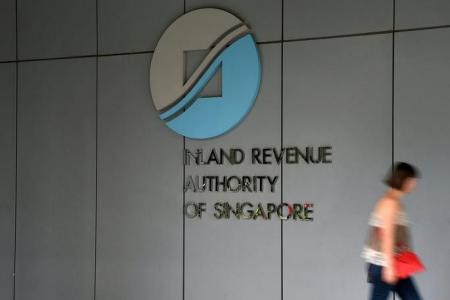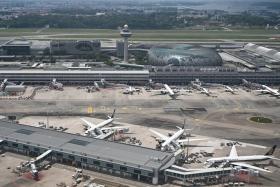Taxman will be allowed to share certain tax information on firms without getting consent
The Inland Revenue Authority of Singapore (Iras) will soon be able to share information on taxpayers with other government agencies for the performance of their official duties, sometimes without getting the consent of the taxpayers.
Changes to the Income Tax Act passed by Parliament on Monday will allow Iras to do so, said Senior Minister of State for Finance Chee Hong Tat.
Speaking during the debate on the changes to income tax rules, Mr Chee said such data sharing will sometimes be allowed even when taxpayers have not given consent. This will apply only to company-related information and does not include data of individuals.
Mr Chee said the latest changes will allow government agencies to better carry out their official duties.
The list of company-related information will be laid out in the Income Tax Act and Goods and Services Tax Act.
Mr Chee said there will be safeguards put in place to protect data confidentiality. “Information in a prescribed list will be provided in a less granular form. For instance, the company’s sales revenue will be shared in ranges rather than the exact value.”
The information will not be given to anyone outside the public sector, even if the person is engaged by the Government or statutory board.
Information on taxpayers will continue to be safeguarded under existing tax laws, the Official Secrets Act and the Public Sector (Governance) Act as well as data governance policies set out in the Government’s instruction manuals.
These rules spell out when data can be shared across agencies and limit data access to only authorised officers.
They also ensure accountability for access and use of data through penalties for unauthorised disclosure and improper use.
Those with access to information on taxpayers are bound by secrecy rules related to tax laws, where unauthorised disclosure of data is an offence.
Other changes to the law on Monday involved the personal income tax rate for top earners, which will be increased from the year of assessment 2024.
The portion of chargeable income after the first $500,000 – up to $1 million – will be taxed at 23 per cent; while income after the first $1 million will be taxed at 24 per cent, up from 22 per cent for both brackets.
The move will strengthen the progressivity of the personal tax system where those who earn more will contribute more, said Mr Chee. The new tax rate is expected to bring in about $170 million in additional revenue a year, he added.
The personal income tax rates for certain types of incomes by non-tax resident individuals that are pegged to the top marginal tax rate of tax resident individuals will also be revised to 24 per cent.
The income types include income received by non-resident professionals for services provided in Singapore or remuneration received by non-resident directors.
During the debate, several MPs raised concerns about the amendments.
For instance, Mr Louis Ng (Nee Soon GRC) asked if it would amount to a contempt of authority if someone refuses to give consent for information to be disclosed. Responding, Mr Chee said taxpayers will be allowed to withhold consent.
Mr Ng and Mr Saktiandi Supaat (Bishan-Toa Payoh GRC) asked for clarification on how taxpayer consent will be obtained. Mr Chee said agencies will provide enough information when putting in a request for consent, so that taxpayers can make an informed decision.
On a separate note, Mr Jamus Lim (Sengkang GRC) from the Workers’ Party (WP) suggested that tax surpluses be given to people in the form of rebates.
He also reiterated the WP's call to delay the impending hike in goods and services tax, given that rising inflation has been driving up the price of goods.
GST will go up by one percentage point to 8 per cent in 2023.
Mr Chee replied that the Government does not have excess revenue, and that the overall fiscal space for Singapore remains tight.
He said: “We also have upcoming structural changes in our society, such as our ageing population, which will require us to spend more on healthcare.”
The Government, he added, has provided a comprehensive offset package to soften the impact of the GST hike, and it will be updated to take into account higher prices.
Get The New Paper on your phone with the free TNP app. Download from the Apple App Store or Google Play Store now


